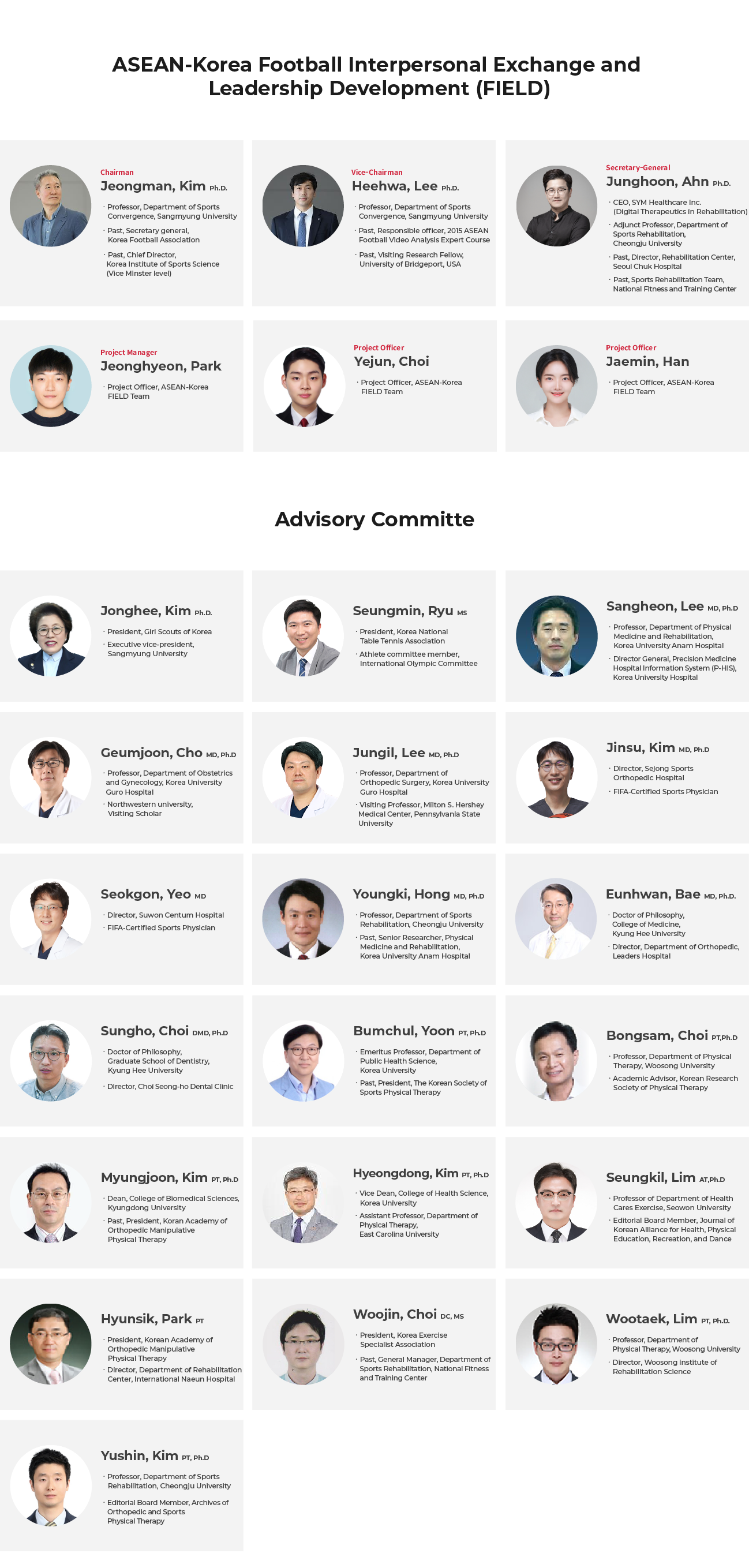ABOUT

history

ASEAN Cooperation Project
The primary goal of the 'ASEAN-Korea Cooperation Fund' is to enhance cooperative
relations between Korea and ASEAN member countries by
focusing on specific areas of collaboration.
This project particularly aims to support the development of vital soft infrastructure necessary
for
hosting a successful World Cup, along with the establishment of grassroots football systems within
ASEAN.
Additionally, it seeks to contribute to the improvement of professional football training and
the nurturing of human resources in this field.

